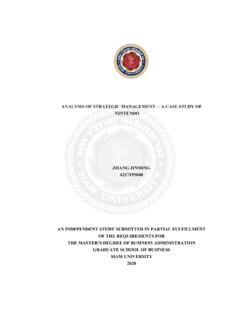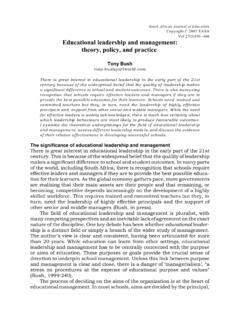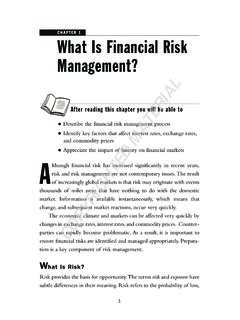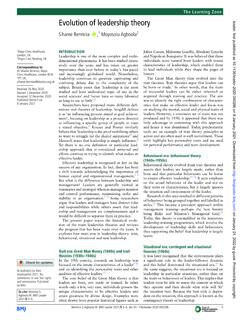Transcription of Decolonization is not a metaphor - Ohio State University
1 Decolonization : Indigeneity, Education & Society Vol. 1, No. 1, 2012, pp. 1- 40 2012 E. Tuck & Yang This is an Open Access article distributed under the terms of the Creative Commons Attribution Noncommercial Unported License ( ), permitting all non-commercial use, distribution, and reproduction in any medium, provided the original work is properly cited. Decolonization is not a metaphor Eve Tuck State University of New York at New Paltz K. Wayne Yang University of California, San Diego Abstract Our goal in this article is to remind readers what is unsettling about Decolonization .
2 Decolonization brings about the repatriation of Indigenous land and life; it is not a metaphor for other things we want to do to improve our societies and schools. The easy adoption of decolonizing discourse by educational advocacy and scholarship, evidenced by the increasing number of calls to decolonize our schools, or use decolonizing methods, or, decolonize student thinking , turns Decolonization into a metaphor . As important as their goals may be, social justice, critical methodologies, or approaches that decenter settler perspectives have objectives that may be incommensurable with Decolonization .
3 Because settler colonialism is built upon an entangled triad structure of settler-native-slave, the decolonial desires of white, non-white, immigrant, postcolonial, and oppressed people, can similarly be entangled in resettlement, reoccupation, and reinhabitation that actually further settler colonialism. The metaphorization of Decolonization makes possible a set of evasions, or settler moves to innocence , that problematically attempt to reconcile settler guilt and complicity, and rescue settler futurity. In this article, we analyze multiple settler moves towards innocence in order to forward an ethic of incommensurability that recognizes what is distinct and what is sovereign for project(s) of Decolonization in relation to human and civil rights based social justice projects.
4 We also point to unsettling themes within transnational/Third World decolonizations, abolition, and critical space-place pedagogies, which challenge the coalescence of social justice endeavors, making room for more meaningful potential alliances. Keywords: Decolonization , settler colonialism, settler moves to innocence, incommensurability, Indigenous land, decolonizing education 2 E. Tuck & Yang Decolonization , which sets out to change the order of the world, is, obviously, a program of complete disorder. But it cannot come as a result of magical practices, nor of a natural shock, nor of a friendly understanding. Decolonization , as we know, is a historical process: that is to say it cannot be understood, it cannot become intelligible nor clear to itself except in the exact measure that we can discern the movements which give it historical form and content.
5 -Franz Fanon, The Wretched of the Earth, 1963, p. 36 Let us admit it, the settler knows perfectly well that no phraseology can be a substitute for reality. -Franz Fanon, The Wretched of the Earth, 1963, p. 45 Introduction For the past several years we have been working, in our writing and teaching, to bring attention to how settler colonialism has shaped schooling and educational research in the United States and other settler colonial nation-states. These are two distinct but overlapping tasks, the first concerned with how the invisibilized dynamics of settler colonialism mark the organization, governance, curricula, and assessment of compulsory learning, the other concerned with how settler perspectives and worldviews get to count as knowledge and research and how these perspectives - repackaged as data and findings - are activated in order to rationalize and maintain unfair social structures.
6 We are doing this work alongside many others who - somewhat relentlessly, in writings, meetings, courses, and activism - don t allow the real and symbolic violences of settler colonialism to be overlooked. Alongside this work, we have been thinking about what Decolonization means, what it wants and requires. One trend we have noticed, with growing apprehension, is the ease with which the language of Decolonization has been superficially adopted into education and other social sciences, supplanting prior ways of talking about social justice, critical methodologies, or approaches which decenter settler perspectives.
7 Decolonization , which we assert is a distinct project from other civil and human rights-based social justice projects, is far too often subsumed into the directives of these projects, with no regard for how Decolonization wants something different than those forms of justice. Settler scholars swap out prior civil and human rights based terms, seemingly to signal both an awareness of the significance of Indigenous and decolonizing theorizations of schooling and educational research, and to include Indigenous peoples on the list of considerations - as an additional special (ethnic) group or class. At a conference on educational research, it is not uncommon to hear speakers refer, almost casually, to the need to decolonize our schools, or use decolonizing methods, or decolonize student thinking.
8 Yet, we have observed a startling number of these discussions make no mention of Indigenous Decolonization is not a metaphor 3 peoples, our/their1 struggles for the recognition of our/their sovereignty, or the contributions of Indigenous intellectuals and activists to theories and frameworks of Decolonization . Further, there is often little recognition given to the immediate context of settler colonialism on the North American lands where many of these conferences take place. Of course, dressing up in the language of Decolonization is not as offensive as Navajo print underwear sold at a clothing chain store (Gaynor, 2012) and other appropriations of Indigenous cultures and materials that occur so frequently.
9 Yet, this kind of inclusion is a form of enclosure, dangerous in how it domesticates Decolonization . It is also a foreclosure, limiting in how it recapitulates dominant theories of social change. On the occasion of the inaugural issue of Decolonization : Indigeneity, Education, & Society, we want to be sure to clarify that Decolonization is not a metaphor . When metaphor invades Decolonization , it kills the very possibility of Decolonization ; it recenters whiteness, it resettles theory, it extends innocence to the settler, it entertains a settler future. Decolonize (a verb) and Decolonization (a noun) cannot easily be grafted onto pre-existing discourses/frameworks, even if they are critical, even if they are anti-racist, even if they are justice frameworks.
10 The easy absorption, adoption, and transposing of Decolonization is yet another form of settler appropriation. When we write about Decolonization , we are not offering it as a metaphor ; it is not an approximation of other experiences of oppression. Decolonization is not a swappable term for other things we want to do to improve our societies and schools. Decolonization doesn t have a synonym. Our goal in this essay is to remind readers what is unsettling about Decolonization - what is unsettling and what should be unsettling. Clearly, we are advocates for the analysis of settler colonialism within education and education research and we position the work of Indigenous thinkers as central in unlocking the confounding aspects of public schooling.








